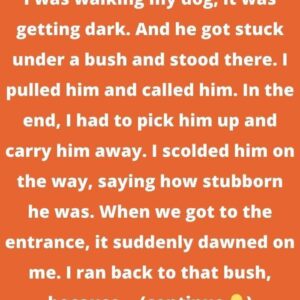Choosing a name for a new baby is no small task. After all, it needs to feel just right for the parents welcoming a child into their lives.
Like many other things, baby names follow cycles and trends. Names that were once uncommon can suddenly surge in popularity, while once-fashionable choices may fade from favour.

If you’re searching for a name that simply feels right, it might be helpful to look at a list of names worth approaching with caution.
Chris Smith, who works at Formuland, studies patterns and forecasts in baby naming, including emerging trends.
“When a name becomes too trendy, it loses the very quality that attracted parents in the first place,” Chris said. “What starts as a unique choice quickly becomes ubiquitous. In five years, these names won’t feel special anymore, they’ll just feel very 2026.”
So, what names might you want to avoid?
Jaden
Names ending in -aden had their heyday in the 2000s and 2010s, but their popularity has declined since.
Chris said: “These names were everywhere in the 2000s and 2010s. While they’re still being used, they’re starting to feel quite dated.
“The name could feel very tied to a specific era as they grow older.”

Magnus
Magnus, meaning “great” in Latin, carries a powerful and grand tone—but Chris warns it may not stand the test of time.
“Magnus is a powerful name, but it might feel like a 2026 time capsule in 20 years,” said Chris. “It’s also quite formal and could be difficult to shorten into a casual nickname, which many children prefer as they get older.”
Azlan
This name falls into a particular category: names inspired by fictional series but spelled differently. Chris suggests avoiding them for practical reasons.
“Your child will spend years saying ‘Azlan with a Z’ every time they introduce themselves,” Chris said. “It might seem like a small burden now, but it adds up over a lifetime of form-filling, coffee orders, and email introductions.”

River
Nature-inspired names are beautiful, but Chris notes that their popularity is rising. If uniqueness is the goal, you may want to consider something else.
“If you’re choosing it for its individuality, you might be disappointed when your son shares the name with multiple classmates,” said Chris.
Bronson
Names like Bronson carry a very rugged, masculine tone, and Chris warns they may place unnecessary expectations on a child.
“Ultra-masculine names like Bronson can box children into certain expectations and may not age well across different life stages,” Chris said.
Ophelia
Literary names can offer wonderful inspiration—so long as you consider the character’s story. In Ophelia’s case, her tragic ending may be worth noting.
“The literary association isn’t exactly positive,” said Chris. “It’s worth considering whether you want your daughter’s name tied to a character known for her tragic fate.”

Khaleesi
Another example of a name pulled from fiction, this one from Game of Thrones—a series with an ending that shocked many fans.
Beyond that, Chris warns the name is very tied to the moment and may age quickly: “What seems cool today might make your child cringe tomorrow.”
Elodie
A distinctive, pretty name—but others seem to think so too, which could make it far more common than you expect.
Chris said: “Elodie is pretty, but it’s exploding in popularity right now. By 2026, it could be the new Emma or Olivia. They’re lovely names, but so common they’ve lost their special quality.”
Azura
Although undeniably beautiful, Azura may come across as more of a stage name than one suited for everyday life—something that could be challenging in formal contexts.
“Think about how it will look on a CV or in a boardroom,” said Chris. “Some children grow to resent names that feel too whimsical or performance-oriented.”
Deia
Lastly, there’s Deia—a name that looks and sounds lovely but may come with lifelong pronunciation issues.
Chris said: “These names are gorgeous on paper, but people will constantly mispronounce them. Your daughter might spend her whole life correcting people, which can be frustrating.”





